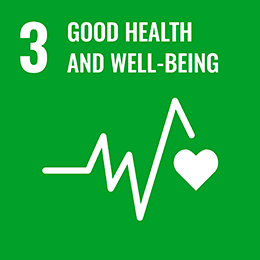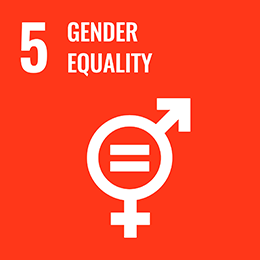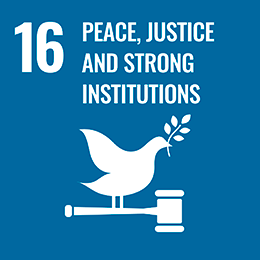Government

Share this article
Are we seeing the end of democracy?
“What’s true of all the evils in the world is true of plague as well. It helps men to rise above themselves” ― Albert Camus, The Plague
Climate crises, plagues, an unwillingness to trade with foreigners and the corruption of democracy: a snapshot of the 21st century or a sign history is repeating itself? The latter ultimately destroyed China’s dynastic reign and Rome’s demise began in 165 AD with the Antoine Plague.
As Britain heads towards a ‘no deal’ Brexit and the US prepares for its 59th presidential election with an incumbent that might not leave if he loses, is this pandemic another nail in democracy’s coffin or can we learn from the leaders of Covid-19’s success stories?
In 2007, the World Health Organisation (WHO) warned that infectious diseases were emerging at an unprecedented rate, yet at the start of 2020 infectious diseases were 10th in the World Economic Forum’s Global Risks Report 2020 list of risks in terms of impact and not even considered in the top 10 for likelihood. As a result, much of the west was not prepared, despite Bill Gates’ warning in 2015.
Further pandemics, exacerbated by climate change, brought down the Roman empire, according to Kyle Harper’s The Fate of Rome: Climate, Disease and the End of an Empire. After Sars, Mers, Ebola, Zika and now Covid-19, we can almost certainly expect more, but have the world’s leaders learned anything from this one?
Going into 2020, the US and UK were the best prepared nations to tackle a pandemic according to the Global Health Security Index, but at 273,000 and 65,700, respectively, they now also top the excess deaths rankings.
What went wrong? In short. Politics.
Since globalisation peaked, we have (reluctantly) been chronicling the deterioration of democracy and highlighting how social media has become the Trojan Horse pushing the populist agenda to the point where algorithmically-distributed fake news was said to have swayed electoral outcomes on both sides of the pond. We live in an age of digital and medical totalitarianism.
Exactly four years ago, we looked at populism’s paradox and it seems that John Micklethwait and Adrian Wooldridge, authors of The Fourth Revolution: The Global Race to Reinvent the State, are right. Global politics right now is being shaped by confluence of three forces: failure, competition and opportunity.
Failure in today’s context is a failure to contain the virus.
Ranked by cases, US, India, Brazil and Russia top the list with the UK not far behind. What these countries have in common are populist male leaders who cast themselves as anti-elite and anti-establishment. They also all subscribe to what Daniel Ziblatt, a government professor at Harvard and co-author of How Democracies Die, calls radical right-wing illiberal populism.
Illiberal populists tend to reject the opinions of scientists and promote conspiracy theories. Sound familiar? Even before Covid-19 stuck, both Donald Trump and Boris Johnson refused to invest in public health and ignored calls for pandemic preparations.
Boston Consulting Group (BCG) has characterised the recovery from the coronavirus into three phases: flatten, fight and future. Within the fight phase, three broad strategies for fighting the coronavirus and restarting the economy have emerged as governments make different policy choices and toggle the trade-offs between health outcomes and economic and societal costs; a discipline BCG calls ‘epinomics’.
So far, the most effective strategy for suppressing the virus has been ‘Crush & Contain’ adopted by authoritarian China and Vietnam, the so-called flawed democracies of South Korea and Taiwan and New Zealand. New Zealand, 4th on the democracy Index, hailed as a Covid-19 success story has been using pandemic-mitigated authoritarianism and plans to keep international borders shut until 2022¹.
The US, UK, Mexico, India and Brazil, all countries run by illiberal populists, have unsuccessfully adopted the most common ‘Flatten & Fight’ strategy. Yet with the same strategy Germany has succeeded, having invested in a clear testing and tracing policy. The jury it out on ‘Sustain & Support’ that Sweden has gone for as it pursues a herd immunity strategy. The country now has 89,248 confirmed cases as of 21 September, compared to 21,847 in neighbouring Denmark.
The future will not arrive until a vaccine or effective treatment is created or people’s natural resistance creates herd immunity. So, competition, as per Micklethwait and Wooldridge’s three forces shaping global politics, is the race to produce the Covid-19 vaccine.
Producing the vaccine first has become a global power struggle where the winner will dominate the global political arena. The quest for the vaccine is this century’s Great Game² with Donald Trump alluding to having one ahead of the presidential elections and Vladimir Putin has already been given Russia’s version, Sputnik V.
Developing the vaccine, however, is more than just winning the next election, it is the moral high ground of having ‘saved the world’. Dirty games like industrial espionage and vaccine nationalism are likely to be par for the course, even if there is a global vaccine effort, which of course the US won’t join because it is led by the WHO.
But perhaps more relevant to Micklethwait and Wooldridge’s latest tome³The Wake-Up Call, the coronavirus is an opportunity to reinvent the state. The authors suggest that the well-funded state public services in Southeast Asia are succeeding over the underfunded state systems of the west.
The authors hail Singapore’s success (even if its relapse shows it is too early to call it a Covid-19 winner) as a state-run model to follow: an efficiently-run highly-skilled country that pays its civil servants well, often more than $1 million per year, and provides scholarships to students who promise to go into government.
The UK’s answer to managing the pandemic is by becoming more technology-enabled as Johnson’s top advisers move out of 10 Downing Street to a data-driven ‘smart government’ command and control centre⁴. Are we heading towards a The Handmaid’s Tale-esque surveillance state? The move towards cashless transactions does echo Margaret Atwood’s credit card digital surveillance⁵.
If we focus on the winners of the Covid-19 pandemic from a caseload perspective, then the answer to the future of government is simpler. It is less about politics and more about gender.
Germany’s Angela Merkel, New Zealand’s Jacinta Arden, Taiwan’s Tsai Ing-wen and Denmark’s Mette Frederiksen strategies worked because the leaders were decisive and acted quickly. In India, which is about to overtake the US in terms of Covid-19 caseloads, the state of Kerala with 35 million people and a female health minister had only lost four to the virus by mid-May.
During this pandemic, female leadership whether it is a country or a hedge fund has resulted in success. What next while we wait for R-numbers to decline and a vaccine to be developed? History shows that the long-term economic impact of pandemics is about capital destruction. For now, inflation is low, but for how long when US debt alone is on a path to exceed World War II⁶ having hit 98% in the 2020 fiscal year?
Patience and resilience have been the words to live by of 2020, and until opportunities present themselves, we think gold should continue to be well supported. If inflation kicks in commodity equities should perform very well and over the next five years the emerging markets still have a lot of value to release.
And keep investing in countries, companies and funds run by women.
Photo: © Niki Natarajan 2019
Artist: SubDude
¹ New Zealand backs lockdown strategy despite record contraction Financial Times (17.09.2020)
² The Great Game in Asia, Foreign Affairs (Spring 1980)
³ The Wake-Up Call, by John Micklethwait and Adrian Wooldridge, Financial Times (14.09.2020)
⁴ An agile UK civil service needs more than ‘Star Trek’ screens, Financial Times (04.09.2020)
⁵ The chilling parallels between The Handmaid’s Tale and our post-pandemic world, The Telegraph, (18.09.2020)
⁶ Federal Borrowing Amid Pandemic Puts U.S. Debt on Path to Exceed World War II, The New York Times (02.09.2020)
Article for information only. All content is created and published by CdR Capital SA. The views and opinions expressed in this article are those of the author(s). Information on this website is only directed at professional, institutional or qualified investors and is not suitable for retail investors. None of the material contained on this website is intended to constitute an offer to sell, or an invitation or solicitation of an offer to buy any product or service. Nothing in this website, or article, should be construed as investment, tax, legal or other advice.
Related articles
The XX Factor
The Queen has reigned for 67 years. Communism has risen and fallen. The Beatles have come and gone, Britain is 5th most economically powerful nation. Women CEOs drive 3x the returns as S&P 500 firms run by men. Why is workplace inequality still a subject?

Democracy
The UK’s vote to exit the European Union and Donald Trump’s victory were signals of a worsening ‘democratic recession’. Today, only 4.5% of the world’s citizens live in fully functioning democracies, down from 8.9% in 2015. What are democracy’s flaws?

Populism Paradox
It doesn’t matter whether or not Trump wins on 8 November because the populism genie is out of the bottle. It is now clear that peak globalisation lies behind us.





